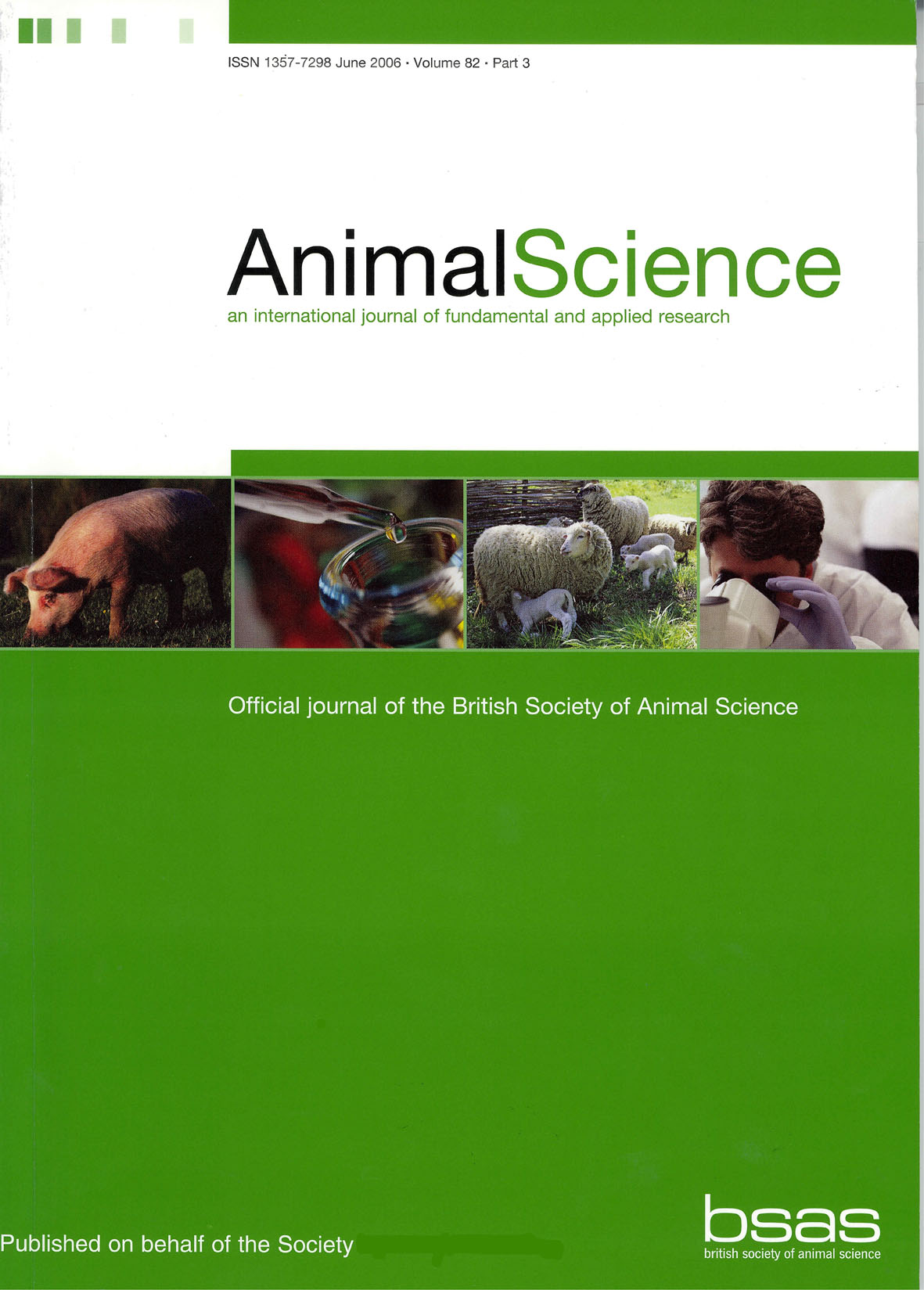Article contents
Effect of meal frequency and rate of nutrient supply on the post-feeding behaviour of the pig
Published online by Cambridge University Press: 02 September 2010
Abstract
There have been suggestions that positive feedback from the meal may stimulate the performance of undesirable behaviour, such as stereotypies, in the post-feeding period. The aim of this work was to measure the short-term effects of a meal on the post-feeding behaviour of the pig.
Pigs (70 kg live weight) were offered food ad libitum for 7 days and then given a restricted food allowance for 23 days (experiment 1) or 14 days (experiment 2). In experiment 1, the food allowance was given in one, two or three meals per day. In experiment 2, the food allowance was given in two meals per day and comprised ingredients which supplied glucose at different rates (starch, glucose/starch, starch/guar gum). The pigs' posture and behaviour were recorded in three 1-h periods during the day on 2 days consecutively during the ad libitum feeding period (time period 1) and on pairs of days on three (periods 2, 3 and 4: experiment 1) or two (periods 2 and 3: experiment 2) subsequent occasions during food restriction. The meal frequency or estimated rate of glucose supply had no significant effects on posture or behaviour. In both experiments activity increased with the duration of food restriction. In periods 1, 2, 3 and 4 of experiment 1 the proportions of observations spent were: standing 0·244, 0·260, 0·706 and 0·728 (s.e.d. 0·0346); nosing 0·073, 0·094, 0·229 and 0·253 (s.e.d. 0·0169); rooting 0·032, 0·037, 0·108 and 0·133 (s.e.d. 0·0133). In periods 1, 2 and 3 of experiment 2 the proportions were: standing 0·247, 0·302 and 0·446 (s.e.d. 0·0240); nosing 0·045, 0·075 and 0·138 (s.e.d. 0·0113); chewing 0·101, 0·126, 0·155 (s.e.d. 0·0121). In experiment 1 feeding rate increased with duration of restriction (P < 0·001), but was unaffected by treatment. It is concluded that post-feeding behaviour was influenced more by long-term changes in state (i.e. prolonged food restriction) than by short-term effects of the meal.
Keywords
- Type
- Research Article
- Information
- Copyright
- Copyright © British Society of Animal Science 1995
References
- 4
- Cited by


